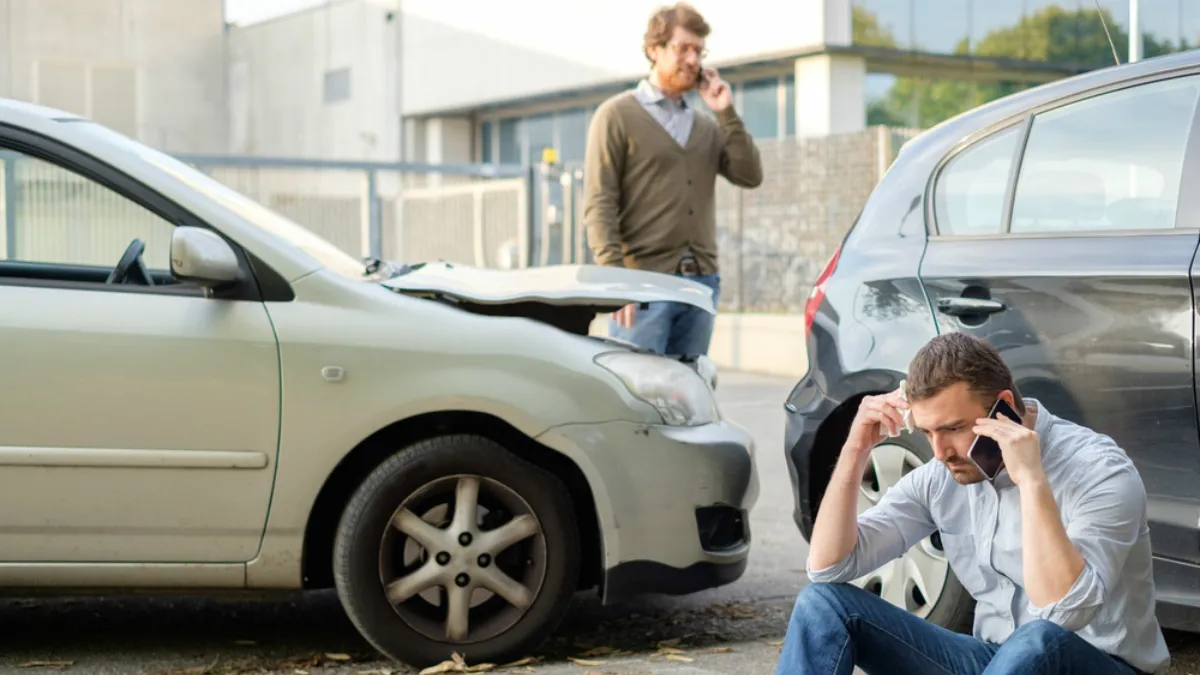

If you find yourself in an accident while driving a rental car, knowing the proper steps to take is crucial. Here’s a concise guide to help you navigate the situation effectively.
First and foremost, ensure your safety and the safety of others. If someone is injured, call emergency services immediately. Next, move to a safe location if possible.
Gather information by taking photos of the scene, your rental car, and any other vehicles involved. Collect contact details from witnesses and other drivers.
Contact the rental agency as soon as possible to report the accident. They will guide you on the next steps and inform you about the ''insurance'' coverage and your responsibilities.
In many cases, a police report is necessary for insurance claims and can help document the incident officially.
If you have personal ''auto insurance'' or purchased additional coverage through the rental agency, inform them of the accident to ensure you’re protected.
By following these steps, you can manage the situation effectively and minimize stress after an accident in a rental car.
When you're driving a rental car, the last thing you want is to be involved in an accident. However, if you find yourself in this unfortunate situation, it's essential to know the steps to take to protect yourself and ensure a smooth claims process. Here’s a comprehensive guide on what to do if you have an accident in a rental car.
The first step after any accident is to remain calm. Take a moment to assess the situation. Check for injuries to yourself and passengers, as well as to others involved in the accident. If anyone is injured, call emergency services immediately.
If your rental car is drivable and it’s safe to do so, move it out of the way of oncoming traffic to avoid further accidents. Turn on your hazard lights to alert other drivers.
In most cases, you should contact the police to report the accident. They will document the incident and create an official report that can be used by your insurance company and the rental car company. Make sure to get the police report number and the contact information of the responding officers.
Collect information from all parties involved in the accident. This includes:
| Information Type | Details |
|---|---|
| Name | Full name of the driver(s) |
| Contact Information | Phone numbers and addresses |
| Insurance Details | Insurance provider and policy numbers |
| Vehicle Information | Make, model, and license plate numbers |
| Witnesses | Name and contact information of any witnesses |
This information will be crucial for filing your claim and may be necessary for legal purposes.
Take photos of the accident scene, including the vehicles involved, any damage, and the surrounding area. This documentation can be vital for insurance claims and determining liability later on.
Contact the rental car company as soon as possible to report the accident. Most rental agreements require you to inform them of any incidents involving their vehicle. Follow their instructions regarding next steps, which may include returning the vehicle or getting a replacement.
Understanding your ''insurance coverage'' is crucial in the event of an accident. Review your personal auto insurance policy or any coverage provided by your credit card used to rent the car. Often, personal auto insurance extends to rental vehicles, but it’s wise to confirm this.
Additionally, rental car companies offer various types of coverage, such as:
| Coverage Type | Description |
|---|---|
| Collision Damage Waiver (CDW) | Covers damages to the rental car in the event of an accident |
| Liability Coverage | Covers damages to other vehicles or property |
| Personal Accident Insurance | Covers medical expenses for you and your passengers |
| Personal Effects Coverage | Covers theft of personal belongings from the rental car |
Make sure to know what your coverage entails, as it will affect how you proceed after the accident.
After gathering all necessary information, it’s time to file a claim with your insurance provider and the rental car company. Be prepared to provide all documentation, including the police report, photos from the scene, and any witness statements.
After filing your claim, follow up with both your insurance company and the rental car company to ensure the claims process is moving forward. Keep detailed records of all communications, including dates, times, and the names of representatives you speak with.
If there are significant damages or injuries involved, or if liability is disputed, consider seeking legal advice. An attorney specializing in auto accidents can guide you through the process and help protect your rights.
Experiencing an accident in a rental car can be stressful, but knowing the right steps to take can help mitigate the situation. From staying calm and gathering information to notifying the rental company and filing your claim, each step is crucial in ensuring a smooth resolution. Remember, understanding your ''insurance coverage'' and the rental car's policies can save you time, money, and headaches down the road.